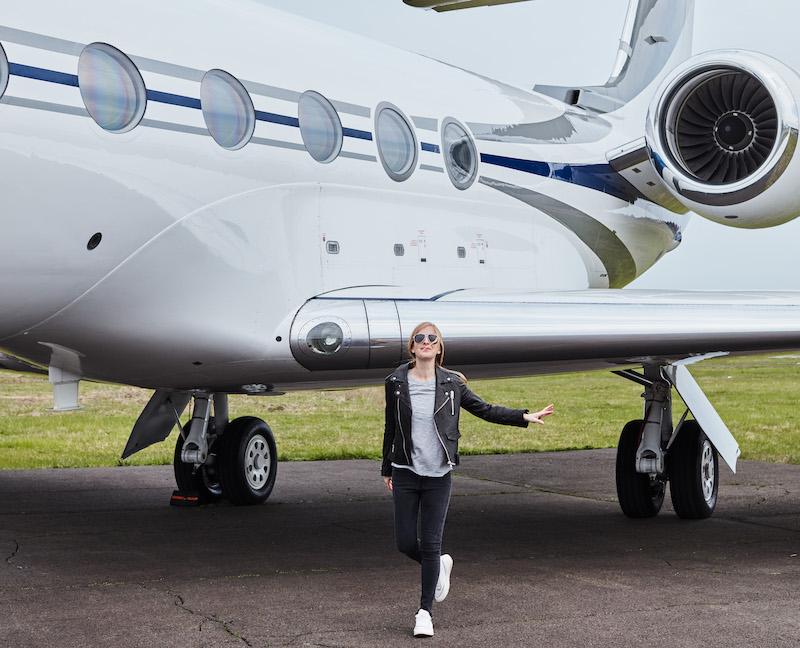This article is published in Aviation Week & Space Technology and is free to read until Aug 15, 2024. If you want to read more articles from this publication, please click the link to subscribe.

FlyJets CEO Jessica Fisher.
As part of FlyJets’ efforts to provide sustainable air charter options for its customers, the company has launched FlyJets+ to increase aircraft utilization through the creation of empty-leg flights.
While it may seem counterintuitive, FlyJets CEO Jessica Fisher says the increased volume and aggregation of empty-leg flights can be beneficial to both customers and aircraft operators. This, alongside the company’s FlyGreen program, works to form FlyJets’ approach to sustainable operations and cost savings.
“We realized that the crux of any issue is really how to aggregate volume—FlyJets is essentially a volume aggregator with flyers and aircraft operators—and then we approach a lot of different industry initiatives with that core volume mandate,” Fisher told Aviation Week.
Through the company’s recently launched subscription service, FlyJets+, customers can request an empty-leg flight as part of their trip. If one is found, the arrangement can provide cost savings upwards of 40%, according to Fisher. While the service may be new, Fisher says FlyJets has a history of manually arranging trips in this fashion but has now automated and expedited the process.
“When you have more volume, you’re increasing utilization,” she says. “If you’re filling an empty-leg same day, you’re increasing utilization and income to the end-user operator.”
FlyJets also offers carbon offsetting through its FlyGreen program, where customers can estimate their carbon emissions and purchase credits through the charter’s website or mobile app. According to Fisher, FlyGreen’s trip calculator uses current market price data, distance, estimated carbon emissions and aircraft type to price its carbon offset service.
The charter purchases its carbon credits through providers like Verra or Gold Standard but allows customers to choose where their carbon credits are spent. Previously, a FlyJets customer chose to have their credits go toward the Cookstove Project — a nonprofit that provides women and their families with access to clean and efficient cookstoves in Uganda and Nepal.
“Right now, I would say the aviation industry operates like the stock market pre-1975,” Fisher says. “There’s nothing electronic, it’s not automated. So, what we’re trying to do is say ‘hey, let’s bring this up to date.' Let’s introduce some technology that’s going to increase utilization, that’s going to enable cost savings and hopefully help to make this industry more efficient and make both the operators and the flyers happy.”





